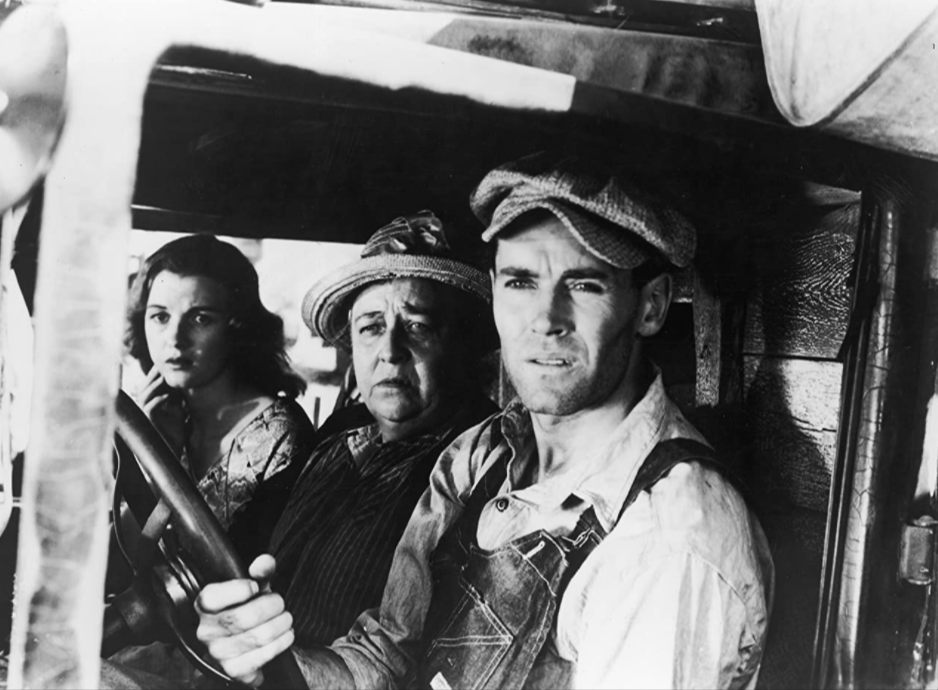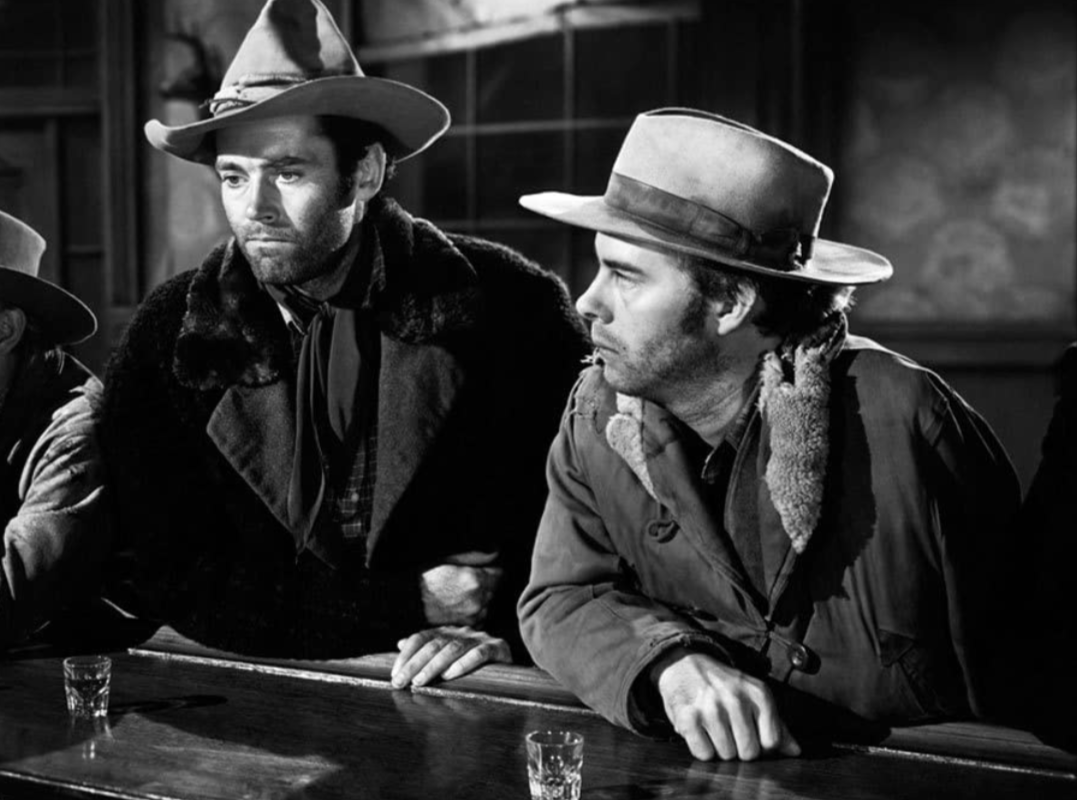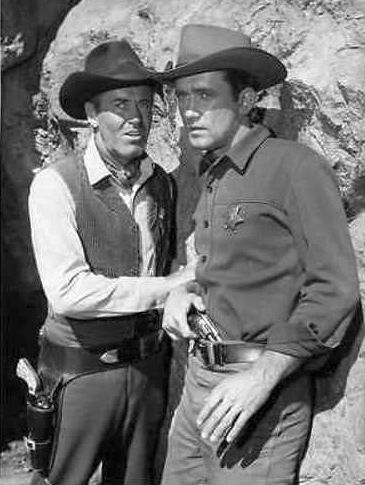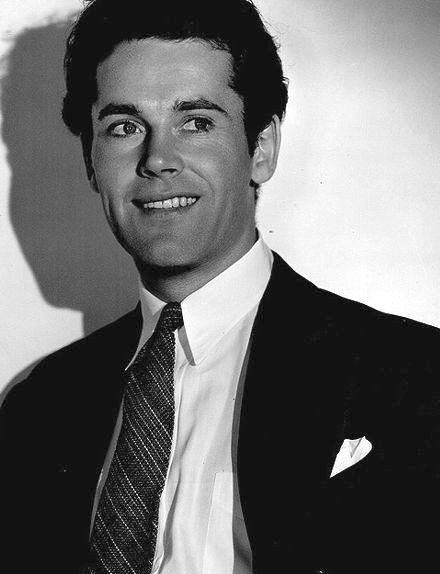Happy Birthday, Henry Fonda!
Posted by Ivan G. Shreve, Jr. on May 16th 2021
For actor Henry Fonda, the old “third time’s the charm” idiom certainly rang true in 1982. He was recognized by his peers at the Academy Awards ceremony that year and awarded the Best Actor in a Leading Role Oscar for his performance as an elderly curmudgeon who reconnects with his daughter (played by real-life daughter Jane) in On Golden Pond (1981). The winner of an honorary award the previous year (“in recognition of his brilliant accomplishments and enduring contribution to the art of motion pictures”), Fonda had been nominated earlier for his turns in The Grapes of Wrath (1940) and 12 Angry Men (1957). Yet the legitimate trophy would provide a fitting capper to the career of the actor born Henry Jaynes Fonda in Grand Island, Nebraska on this date in 1905.

Henry Fonda and his family moved to Omaha when he was six months old. His father set up a printing shop, and while young Hank aspired to be a newspaperman (majoring in journalism when he enrolled at the University of Minnesota), he quit college after two years and accepted a job as an office boy with the Retail Credit Company. That line of work didn’t satisfy Fonda, either. However, his time spent with the Omaha Community Playhouse (which he joined at age 20, at the suggestion of Marlon Brando’s mother Dodie) stoked an interest in acting and the theatre. After success in productions like You and I and Merton of the Movies, he quit his Omaha job in 1928 and relocated to Cape Cod, Massachusetts.
A short time after his arrival in Cape Cod, Henry Fonda (on the advice of a friend) joined the University Players in nearby Falmouth—an intercollegiate summer stock company that developed his acting style. It was here that he met future wife Margaret Sullivan (they were married from 1931 to 1933 and appeared together onscreen in 1936’s The Moon’s Our Home), and made acquaintances with the likes of Joshua Logan, Myron McCormick, Mildred Natwick, and James Stewart (who would become Hank’s lifelong friend and even roommate when the two arrived in Hollywood).
Henry Fonda and James Stewart were also best buds/roomies when Fonda moved to NYC to be with his then-wife Margaret Sullavan. Hank soon got roles in productions of I Loved You Wednesday (1932) and New Faces of 1934 (his first important Broadway role). Even after establishing himself as a major motion picture star, Fonda still made time for stage work with later appearances in Mister Roberts (1948; he reprised the role in the 1955 film adaptation), The Caine Mutiny Court-Martial (1954), Two For the Seesaw (1958), Critic’s Choice (1960), and a 1969 revival of Our Town. However, it was his showcase in 1934’s The Farmer Takes a Wife that started his meteoric rise in Hollywood when he was asked to reprise his stage role in the 1935 film adaptation. He would soon become a favorite of moviegoers in features like The Trail of the Lonesome Pine (1936), You Only Live Once (1937), Jezebel (1938), and Spawn of the North (1938).

The apex of Henry Fonda’s early Hollywood career was reached with his appearance in John Ford’s Young Mr. Lincoln (1939), the first of seven films Hank would make with the veteran director. In fact, the two films released after Lincoln, Drums Along the Mohawk (1939) and The Grapes of Wrath (1940), were Fonda-Ford collaborations—with Wrath earning the actor his first Best Actor Oscar nomination. (He was beaten in that race by his pal Jimmy Stewart, who won for The Philadelphia Story.) The remaining films of the Fonda-Ford partnership were postwar releases: My Darling Clementine (1946), The Fugitive (1947; a box office disappointment), Fort Apache (1948), and Mister Roberts (1955; started by Ford but taken over by Fonda’s old friend Josh Logan when Ford fell ill). (Henry also appeared in the 1962 epic How the West Was Won, which featured direction by Ford–but Hank’s scenes were helmed by George Marshall.)
One of Henry Fonda’s earliest radio appearances was on a December 13, 1934 broadcast of Rudy Vallee’s Fleischmann’s Yeast Hour, on which he and June Walker performed a scene from The Farmer Takes a Wife. Hank would become a welcomed guest on the top dramatic anthologies of the day, reprising roles from such feature films as I Met My Love Again (1938), The Return of Frank James (1940), and The Magnificent Dope (1942) on the likes of Hollywood Star Theatre and The Lux Radio Theatre. Fonda’s radio resume includes appearances on Academy Award Theatre, The Cavalcade of America, The Electric Theatre, Eyes Aloft, Family Theatre, Free Company, The Gulf/Lady Esther Screen Guild Theatre, The Hotpoint Holiday Hour, The Martin and Lewis Show, Philco Radio Time, The Royal Gelatin Hour, The Shell Chateau, Suspense, Theatre of Romance, and The Treasury Hour.
Henry Fonda’s film career was one of great versatility: he shined in screwball comedies like The Lady Eve (1941) and The Male Animal (1942) and excelled in Westerns such as Jesse James (1939) and The Ox-Bow Incident (1943). Fonda enlisted in the Navy in 1942, serving in the Pacific in WW2 and receiving a Bronze Star and a Presidential Citation. As a civilian once again, he fluctuated from motion pictures to stage work, and continued to do so throughout the 1950s. Hank scored a critical success with his appearance in the Alfred Hitchcock-directed The Wrong Man (1957); that same year, he received his second Best Actor Oscar nomination for 12 Angry Men.

1957 also saw the release of The Tin Star, an Anthony Mann-directed Western featuring Henry Fonda as a bounty hunter who mentors an inexperienced young lawman (Anthony Perkins). The film’s plot would inspire Fonda’s first starring TV series, The Deputy (1959-61), with the actor as a U.S. Marshal giving a helping hand to the titular peacekeeper (Allen Case). Fonda’s participation on the program was a bit minimal (in the first season, he shot all his scenes in ten weeks to free up his schedule for film and theatre work); he committed himself more to The Smith Family (1971-72), a family comedy with Hank as the cop patriarch of a brood that featured Ron Howard as his oldest son. Fonda was also a guest on such shows as The Bill Cosby Show, The Dick Powell Theatre, The Ed Sullivan Show, and Maude.
Throughout the 1960s, Henry Fonda came to represent authority figures in feature films. He was a Secretary of State nominee in Advise & Consent (1962) and a candidate for the Presidency in The Best Man (1964). (He’d eventually get to be President in 1964’s Fail Safe…though he’d also wind up having to decide to nuke New York City.) Fonda played top cops in Madigan and The Boston Strangler (both 1968) and was even cast against type as one of the most cold-blooded villains in movie history in the classic Western Once Upon a Time in the West (1969). In the 70s, Hank would portray historical figures like Clarence Darrow (in a 1974 TV movie), General Douglas MacArthur (1976’s Collision Course: Truman vs. MacArthur), and Admiral Chester W. Nimitz (Midway [1976]). The actor received the American Film Institute’s Life Achievement Award in 1978 and left this world for a better one a few months after winning the Best Actor Oscar at the age of 77.

Radio Spirits invites you to celebrate Mr. Fonda’s natal anniversary by checking out our Jack Benny collection Be Our Guest. Henry’s the narrator of “The Man Who Came to Dinner,” a production of the classic George S. Kaufman-Moss Hart play as originally presented December 25, 1949 on The Hotpoint Holiday Hour. Fonda is also among the galaxy of stars featured on our 4-DVD set Hollywood’s Greatest Screen Legends. In our digital downloads store, we have Henry on hand on Great Radio Spies and an October 8, 1945 broadcast of The Cavalcade of America (“Spy on the Kilocycles”). Happy birthday, Hank!

